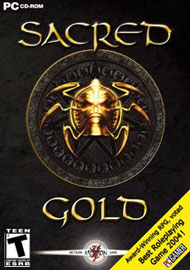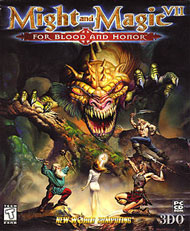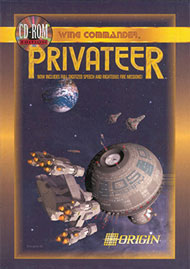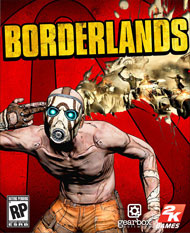Top 10 Open World Games
Call them open world or sandbox games—either title gives a good idea of the freedom that this particular genre allows. Open world games usually have a main storyline that the player can follow, but their main defining feature is having a large world that can be traversed freely by the player character, albeit often at the player’s own peril. Along with this open world, many of these games allow the player to take on plentiful side quests and choose between a good, evil, or in-between lifestyle. Most open world games are RPGs or action adventures, though the shooter genre is starting to incorporate more open world and sandbox elements as well.
Although Bethesda and Rockstar have taken the reins and currently rule the roost when it comes to open world games, other companies pioneered the idea in the 1990s. In order to make this list as diverse and interesting as possible, we’ve limited it to one entry per series. We’re also leaving out MMO-style games, focusing only on single-player or small group co-op games. With those rules in mind, here’s a list of ten great open world games from the past and present.
 10. Sacred Gold
10. Sacred Gold
Sacred Gold is one of the better Diablo clones out there, and unlike the Big D, it takes place in a gigantic open fantasy world. Featuring eight classes and an interesting skill system that requires the player to balance power with recharge time, Sacred has tons of customization options. Every piece of equipment, even jewelry, is shown on the character model, and a variety of ordinary and extraordinary mounts can be procured for transportation. Although the rapid enemy respawns can be a bit aggravating, Sacred Gold is a great choice for a player who wants to get lost in a Diablo-style action RPG world.
 9. Might and Magic VII
9. Might and Magic VII
The middle games in the Might and Magic series are fun even today, despite the antiquated graphics. Might and Magic VII was one of the first open world RPGs, giving the player’s party free rein to wander a fantasy world, recruit NPC helpers, master their classes, and complete plenty of side quests and optional dungeons along the way. The player can even decide whether to follow the path of Light or Darkness halfway through the game, experiencing a different main set of quests on each path. Eventually, the player even gains the ability to fly around, strafing the bad guys below with firey magic doom. Awesome.
 8. Wing Commander: Privateer
8. Wing Commander: Privateer
Adding a bit of science fiction flavor to this list, Wing Commander: Privateer is a sandbox-style entry in the acclaimed Wing Commander series. As a privateer, the player has the freedom to fly anywhere in the game’s world, choosing whether to be a pirate, merchant, or mercenary, and deciding which factions to ally with. The player can even rebel against the human Confederation and ally with the feline Kilrathi, who are the enemies in most of the Wing Commander series. It’s a shame that the Wing Commander series didn’t survive the mid-1990s, because it’d be neat to see some modern mainstream open-world space games.
 7. Borderlands
7. Borderlands
With slick cel-shaded graphics and unique characters, Borderlands brings action and style to the sandbox game world. A shooter-RPG hybrid, the game allows players to choose from four unique characters who are seeking treasure in a sprawling and desolate alien land. It even allows multiplayer co-op, a feat rarely seen in open world games. In fact, players may find the game’s single-player mode to be a bit monotonous after a while, and many prefer playing Borderlands with friends.
 6. Ultima VII
6. Ultima VII
Ultima VII, along with being a sandbox game pioneer, is one of the games that has taken the concept to its fullest. Gaming luminary Richard Garriot envisioned a world in which every object could be picked up and used, creating a game that was extremely fun to mess around with while simultaneously being a nightmare in terms of inventory management. Characters can do everything from baking bread to re-arranging furniture in order to give themselves a tactical advantage in battle.
In Ultima VII, the previously virtuous Avatar character has a certain amount of moral dexterity, starting a trend that would evolve into the ethically flexible open world games we see today. Both open world gaming and MMORPGs owe a huge debt to this game, which was an inspiration to many developers.
- Page 1
- Page 2
